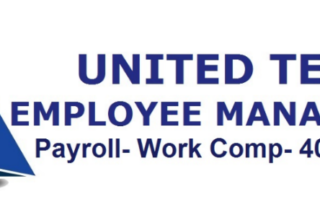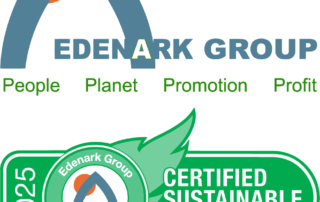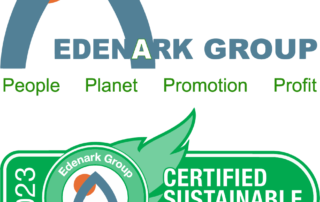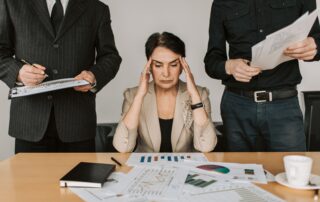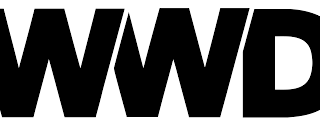Find and see the best corporate environmental sustainability news, posts and stories here, at Edenark Group’s “IN THE NEWS.” Let us know if you have environmental sustainability news you would like us to add.
Are you listening?
Are you listening to your customer?
88% of consumers want you, a company selling them products/services, to help them make a difference, by being more environmentally friendly.
This is consistent with other studies that show that 87% of the largest buying group (Under 40 Consumer) and 71% of ALL consumers, will move their business to a certified sustainable company.
25% of consumers have already changed vendors due to their desire to find a certified sustainable company. Did you win any of that business?
The next 20 – 43% of consumers moving their business is in play right now. Will you be a giver or taker for this market share?
Large organizations are mandated by their own sustainability programs to move their vendor relationships to certified sustainable companies. As vendors, this will be a curse for some and an opportunity for others. Which will it be for your company?
Your customer is speaking. Are you listening?
United Tech Employee Management has renewed its Environmental Sustainability Certification through 2025
United Tech Employee Management, a Palm Beach, Florida-based, family-owned, employee leasing, payroll, workers’ comp, and unemployment administration company, has renewed its Edenark Group ISO 14001 environmental sustainability certification through 2025.
The Edenark Group ISO 14001 is the world’s premier environmental sustainability certification program and allows SMEs (small to mid-sized enterprises) the ability to attain the world’s most popular environmental certification standard via a program designed and priced specifically for them.
The program, which allows companies to progressively improve at a pace that works for their needs, helps the organization define how it interacts internally, externally, and with the environment. It incorporates energy/waste/water, employee health and performance enhancement, community involvement, procurement and suppliers, compliance and regulations, emergency/security, and stakeholder engagement. Benefits include creating a culture of continual improvement, stakeholder engagement, lower costs, higher revenues and profits, improved employee performance, and…… doing the right thing for the environment.
“We have deep desire to help improve our community; serving people and protecting future generations is at the core of our culture. We are choosing to be part of the solution,” said Kristina Smith, President of United Tech Employee Management. “Our model allows our services to scale and grow as our clients grow. We like the fact that the Edenark Group ISO 14001 program follows the same philosophy of progressive improvement, allowing us to continue to grow and improve in our sustainability effort every year,” added Smith.
“Sustainability is not a one-and-done event. It is a process of continual improvement. Any organization that claims to be sustainable and does not have an annual certification via a globally-recognized program with 3rd party verification is greenwashing; they are not willing to have their actions validated. When an organization attains and renews the Edenark Group ISO 14001 sustainability certification, they are not just doing it to see their costs go down and revenues and profits go up; they are setting a higher bar for their organization and sending a signal to all those around them,” says David Goodman, CEO of Edenark Group. “They are agreeing to adhere to the world’s Gold standard for sustainability certification; are choosing to be a leader and part of the solution, not the problem; and are joining an elite fraternity of over 300,000 organizations, in over 150 countries, that have committed to continually improve in every way.”
United Tech Employee Management can be reached at +1 561.594.4892
Edenark Group can be reached at +1 561.512.2257
Your Brain is Ready When You Are!
The medical community has long believed that our cognitive abilities start deteriorating after +/- age 25.
But a new study that we discuss in this post, shows that brains in older adults can still rebuild and grow. In effect, the fundamental machinery to produce new neurons remains intact throughout life.
These findings suggest that cognitive decline might not be due to new neurons but rather in how these cells connect and communicate.
Connectivity and communication are negatively impacted by inflammation, toxins, and a lack of oxygen.
Your body uses oxygen to maintain and rebuild. As you get older, more parts of your body need help and more oxygen is needed.
Normally, your brain uses roughly 20% of the oxygen you take in. If you have multiple areas of your body yelling “Help me”, your brain is simply not getting enough oxygen to fight off the toxins and inflammation, and also rebuild. This leads to reduced cognition.
But, if we stimulate the brain with more oxygen, we can help it rebuild and remain healthy.
This is what we are seeing in our Gym for the Brain clients.
Point is, as we head into a new year, you do not need to give up or accept your gradual mental decline. Your brain is ready to rebuild when you are ready to help it do so.
What have we learned recently?
Here are a few things we have touched on in the past few days:
- The media wants to, for free, promote your company, when you decide to become environmentally certified sustainable
- But what should you look for in a program?
- And, even if you get certified, who would help you talk about it?
- And, if you talk about it, do good things happen?
- But, helping save the planet aside, are there really financial benefits to becoming certified sustainable?
- Ok, but what about retention? Do organizations that sign up, re-up?
Are You Doing All You Can to Grow Your Company?
As we turn our attention to 2025….
Are You Doing All You Can to Grow Your Company?
HAVE YOU DONE EVERYTHING TO MAXIMIZE MARGINS?
Per Nielsen, a certified sustainable company, promoting same, enjoys a 5% year-on-year price increase. Its non-sustainable competitors grow prices 1% year-on-year.
If you are not a certified sustainable company, and enjoying the promotional benefits of same, per Nielsen, you are leaving 4% on the table, year-on-year.
HOW ARE YOU DIFFERENTIATING YOUR BUSINESS?
Per MIT / BCG, the biggest challenge facing your business is competitive differentiation.
Per Cone / Ebiquity Global CSR, 84% of consumers seek companies that have differentiated by becoming certified sustainable.
Per Symbola, companies that have differentiated with our standard are growing 20x faster than their non-certified competitive peers.
If you are not certified sustainable, you are not growing as fast as your competitors who are?
HOW WILL YOU INFLUENCE THE LARGEST BUYING GROUP?
Per Forbes, the largest buying group (19 – 39 year olds) disbelieve 99% of all advertising that does not have 3rd party verification/certification.
Further, per Forbes, before visiting a company or purchasing a product, they review a company’s environmental standing and 9 out of 10 (87%) of them will then purchase from, and remain loyal to, a company that has proven (certified) its environmental standing.
If your competitor becomes certified sustainable before you, you will lose market share.
WILL YOU BE A MARKET SHARE GIVER OR TAKER?
Per a number of studies/reports, including Unilever, there is a +$2 Trillion gap between consumers looking to move their business to certified sustainable organizations….and the availability of same.
This takes us back to the Symbola study showing that certified sustainable small to mid-sized businesses are growing 20x faster than their non-certified peers.
If you are not certified sustainable and a competitor becomes so, you will be a market share giver.
WILL YOU BE TOO BUSY TO TAKE BUSINESS FROM YOUR COMPETITORS?
Per an A. T. Kearney study, sustainable companies outperform their peers by 15%.
Yet, the top reason executives give for not pursuing sustainability is, “I’m too busy.”
So, back to the first question as we prepare for 2025 – Are you doing all you can to grow your company?
Video Testimonial on Positive ROI from Edenark Group ISO 14001 Program
We, at Edenark Group, do a terrible job of explaining some of the components of our service. Often, our clients do a better job.
This video has one of our partners asking for an update from one of our new clients. She explains that, immediately after she signed up, and before we start the certification application process, we prepared and published, a post for her business; as we do for all our clients.
The financial value to her business, of just that one post, exceeds the cost of her entire certification effort. As such, even before we get her business certified, she is enjoying a positive ROI.
How many vendors do you have that are delivering a positive ROI before they even deliver their full service to you?
We go for smiles and we got one from her!
If you would like to smile, contact us.
What is your company doing that consumers want to hear about and the media wants to talk about?
Hundreds of news services shared this story of MagikFlame pursuing the Edenark Group ISO 14001 environmental sustainability certification.
Consumers want to hear that your company is a good corporate citizen and the media wants to talk about it.
What are you currently doing in your company that consumers want to hear about and the media wants to talk about? If it is not something that will help everyone around you, that 7 out of 10 consumers will move their business for, that your employees will be proud of, and that you will feel good about, give us a call.
80% of Consumers Disbelieve your Sustainability Claims that are not 3rd Party Verified/Certified
In a study consistent with other studies we have seen, WWD reports that
- 80% of consumers DISBELIEVE a company’s sustainability claims when not supported by a 3rd party certification or validation
- 83% of consumers BELIEVE a company’s sustainability claims when supported by a valid 3rd party certification/validation
If you are spending the time and money to pursue sustainability, for the good of the planet
- FANTASTIC!
- That is the reason to do it!
But if you also want…
- Positive ROI
- The revenue-side benefit that comes with market trust and support
- Brand benefit
- Compliance with government and client requirements
- Lender and investor support
- To be part of a globally recognized program
…you are going to need a certification from a globally-recognized program.
Please review this flyer, or this master class; then contact us.



